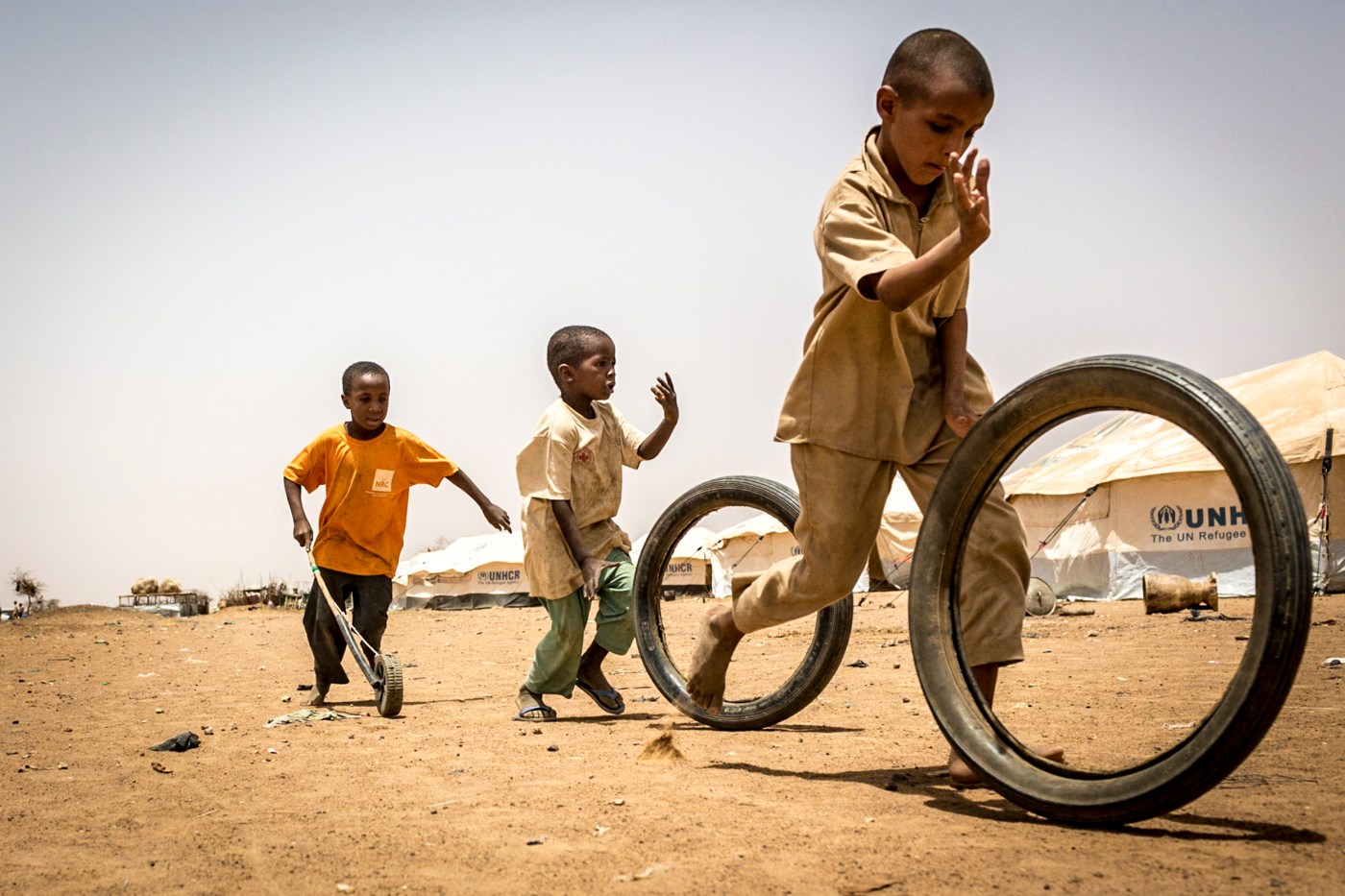
For 15 years, I’ve photographed children at play in some of the hardest places on Earth — post-disaster Haiti, Middle Eastern refugee camps, war-scarred regions from Palestine to Bangladesh. Time and again, I’ve seen something extraordinary: After crisis, children don’t just seek food or shelter. They seek each other. They play.
They turn broken objects into toys, invent rules, argue, adapt, laugh — and try again. They create temporary worlds governed by shared understanding. And they do it instinctively — without adult direction, or fear.
It took time to see what was really happening. This wasn’t just resilience. Something in these kids understands what many adults have forgotten — that play is not frivolous. It’s survival. It’s repair. Children know instinctively that play heals.
We tend to think of play as childish or optional. But it’s how we first learn to care for ourselves and live with others. It’s our earliest education in empathy, fairness and cooperation. In our society, now fracturing along lines of distrust and polarization, play might be the civic training we need most to repair our democracy.
Kids playing on the roadside in Ethiopia in 2016. (Photo by Nancy Richards Farese)
In unstructured play, children practice the very skills democracy relies on. A backyard game of tag teaches how to negotiate, choose a leader, adapt rules and resolve conflict. The goal is to play as long as possible. Children experience justice and injustice, freedom and constraint. And they do this not through screens, but with other humans — in real time. These aren’t soft skills. They’re survival skills for pluralism.
Yet we’re losing the spaces where this kind of play happens. Schoolyards and public spaces are shrinking. Free play is replaced by screen time, structured programs and constant adult oversight. We’re raising kids who rarely solve their own problems. We’ve prioritized safety over self-governance, fragility over resilience.
It’s not just kids who suffer from the loss of play. Adults are starving for it, too.
Play is where we learn emotional flexibility, tolerate ambiguity and practice creative risk — skills so critical for democracy. For democracy isn’t safe. It’s messy and full of disagreement. It requires citizens who will engage, trust and collaborate — even in conflict.
These skills we learn through play are what allow us to coexist with people who think differently, to engage without vilifying and to be curious instead of reactive.
Without play, we fall back on rigidity, retreat into tribalism. We mistake angry performance for constructive participation. Generosity and empathy give way to spectacle and scorekeeping.
Children find an alternative to a climbing gym at Ecole Marguerite D’Youville Port-au-Prince in 2018. (Photo by Nancy Richards Farese)
What if play was as essential to public life as voting, protesting or debate?
Play is a social glue. Imagine cities that built playful infrastructure — public art, open spaces, games that encourage strangers to cooperate. Imagine political movements that centered on trust and collaboration instead of outrage. Imagine reclaiming adulthood through human connection, not work.
There is something instructive about the civic genius of children, for whom play is a mindset. Play allows us to do something for no purpose except fun. When kids play, they are training to manage the ambiguity of an adult world. When adults play, we are training to be resilient — not just individually, but collectively. And play is free.
If we want to nurture our democracy, we need more than civics classes. We also need room for creative risk taking, debate and laughter.
We need play.
Nancy Richards Farese is the founder of CatchLight, a visual media organization, and a photographer working with international aid organizations to document children in trauma and dislocation. Her work is on display at the Children’s Discovery Museum of San Jose through June 8.